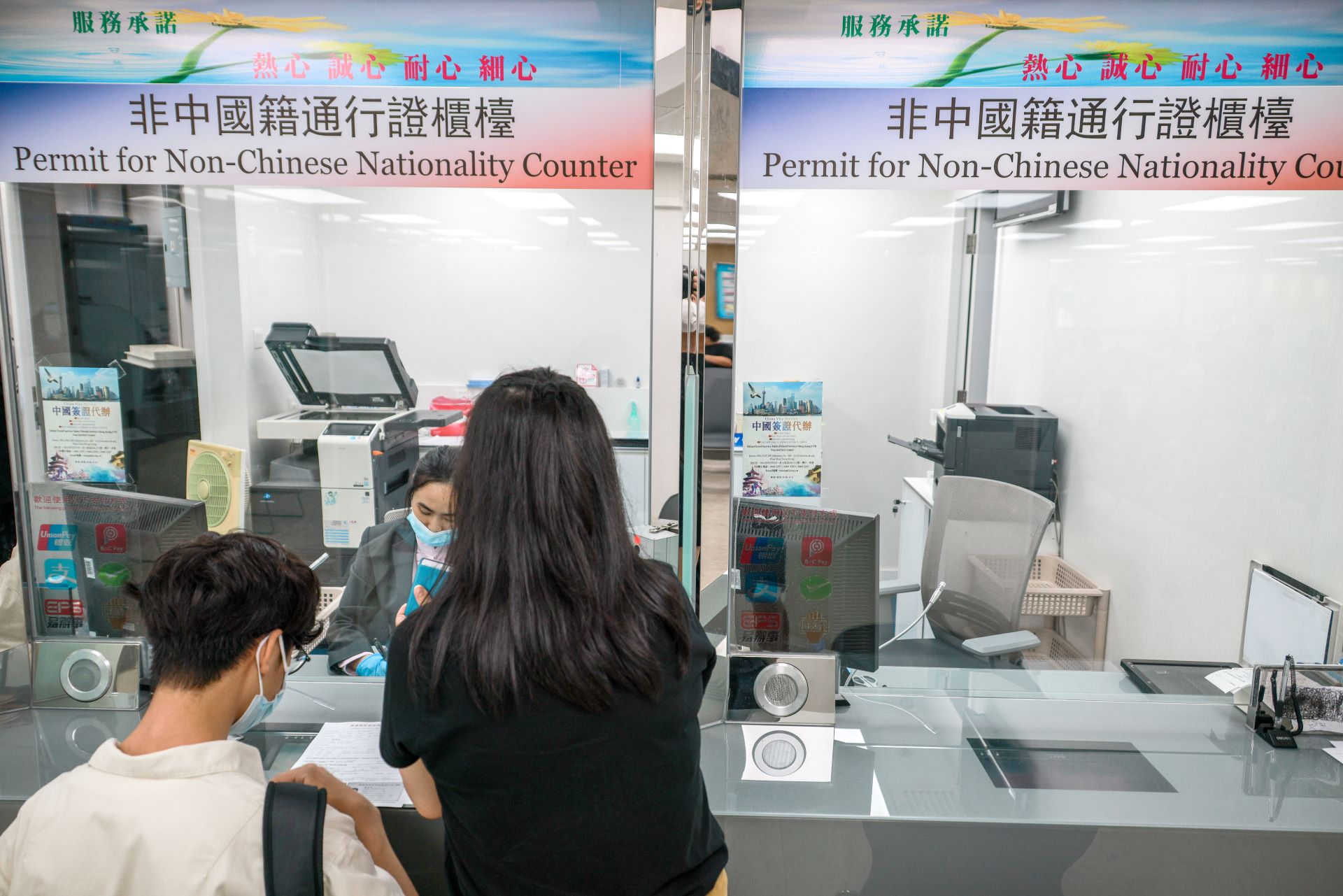
Non-Chinese permanent residents of Hong Kong and Macao applying for a new card-style Chinese mainland travel permit have welcomed the policy’s potential to facilitate their travel, but say they hope for clearer and more detailed guidance in the application process.
On Wednesday, the first day that applications for the new permit were accepted, scores of non-Chinese residents lined up at offices of China Travel Service Ltd (CTS) in the two special administrative regions to submit related documents. Some even arrived an hour before the office’s opening time.
The permit, which costs HK$260 ($33), offers multiple entries into the mainland within a five-year validity period. Each stay is limited to 90 days, providing flexibility for travelers to engage in business, tourism, or other activities during their visits to the Chinese mainland.
Shamim Ashraf, a media industry professional who has lived in Hong Kong for eight years, said that he is looking forward to applying for the new travel permit, adding that the new policy gives non-Chinese residents a feeling that they are not much different from Chinese nationals in the city
Applicants need to appear in person at designated CTS offices to submit documents. The CTS office in Sheung Wan has set up two dedicated counters to process related applications. The processing and issuance of the travel permit is expected to take 20 working days.
ALSO READ: Expats in HK, Macao flock to apply for new mainland travel permit
John, a bank employee from the United States, said everything went smoothly during his application in a CTS office on Hong Kong Island, as he thoroughly checked the required documents in advance. He said he is curious about the mainland and looks forward to traveling to Guilin, Guangxi Zhuang autonomous region, after he gets the permit.
Another expatriate who welcomed the new travel card is 33-year-old South Korean Tony Kim Tae Jung, who works as an airline customer adviser in Hong Kong. He has lived in Hong Kong for around 11 years and goes to Shenzhen every week for dining and shopping.
Kim said he finds the current border clearance procedure to the mainland cumbersome as he has to fill out an arrival card every time. With the new permit, he can use the e-channel for crossing the border without the need to present his passport. He looks forward to easily opening a mainland bank account, which will greatly enhance his travel experience within the mainland.
Shamim Ashraf, a media industry professional who has lived in Hong Kong for eight years, said that he is looking forward to applying for the new travel permit, adding that the new policy gives non-Chinese residents a feeling that they are not much different from Chinese nationals in the city.
ALSO READ: SARs hail new travel policy for non-Chinese permanent residents
Ashraf had contemplated traveling to the mainland with his family on multiple occasions before the introduction of the new permit. But the lengthy visa application process consistently caused him to postpone his plans. He said he hopes the new permit will bring greater convenience to cross-boundary travel, allowing him to fulfill his travel aspirations without the previous hassles.
One non-Chinese resident who has lived in Hong Kong for 20 years and preferred to remain anonymous also expressed his willingness to apply for the card. He emphasized that the mainland is the easiest place to take a break from Hong Kong, adding that he usually visits the mainland for various purposes, including business trips, leisure activities, and even dental appointments.
Australian content creator Aaron Busch made the application in the CTS office in Mong Kok. He acknowledged that the process could be challenging for expats who don’t speak Chinese, as there was limited English guidance available at the office.
Indians Mehul and Nipul failed to submit applications because of their inability to understand and read Chinese. Seeking the permit for mainland business, they initially went to the Immigration Department, but were instructed to go to a CTS office first.
READ MORE: Flying high
However, upon reaching CTS, they were redirected back to Immigration. Even after their visit to CTS, they still lacked clarity on the complete process and the required documents because of the lack of English guidelines.
China Daily’s reporters saw that at the CTS office in Mong Kok many on-site instructions and signs, including the CTS signboard, were exclusively in Chinese without any English translations. Additionally, it was also challenging to find any information specifically related to the new permit at the site.
Fang Xue and Atlas Shao contributed to the story.


